The Big Read in short: Curbs on team sports have wider ramifications than we think
SINGAPORE — Football enthusiast Hatta Aziz used to play cage soccer with his friends regularly, which helped him to unwind after a long day.
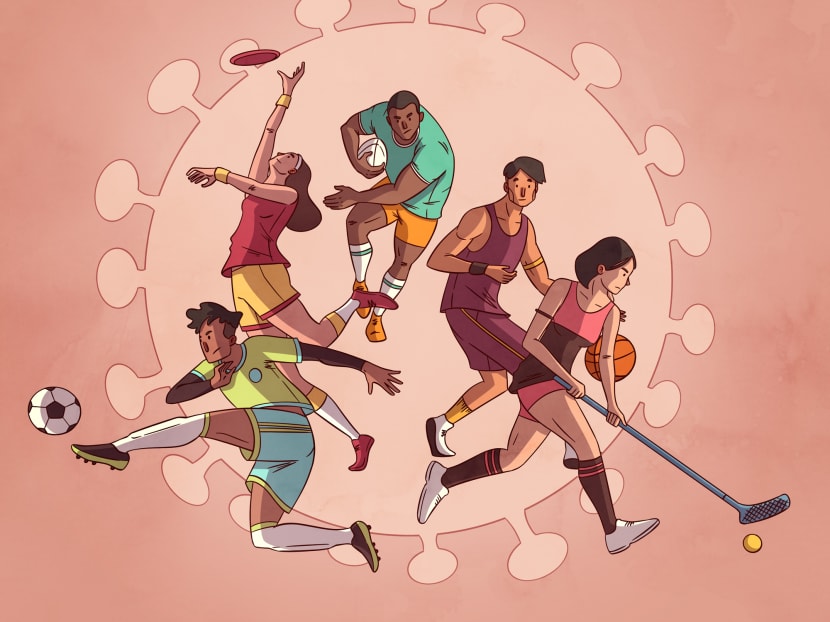
Strict safe distancing measures and group size limitations have affected many facets of life here, and team sports have not been spared.
Each week, TODAY’s long-running Big Read series delves into the trends and issues that matter. This week, we look at how the pandemic-induced restrictions on team sports has far-reaching implications for society on various levels. This is a shortened version of the full feature, which can be found here.
- Strict safe distancing measures and group size limitations have affected many facets of life here, and team sports have not been spared
- Coaches, players and sports associations have reported a decline in participation rates for various team sports
- While a pilot scheme is in place for some team sports to resume in a limited but safe manner, players and parents hope that more can be done
- Experts say that the fall in team sports participation can result in higher anxiety levels, while for children, it could stymie their social development
- On the competitive level, Singaporean athletes could also fall behind their international counterparts as there have been fewer training opportunities for them to improve their skills
SINGAPORE — Football enthusiast Hatta Aziz used to play futsal with his friends regularly, which helped him to unwind after a long day.
Then Covid-19 struck in early 2020, forcing football and many other team sports into an indefinite timeout, as various restrictions to tame the pandemic, such as group size limitations and safe distancing, were imposed.
While the 35-year-old digital marketing consultant used to play futsal with his friends about two to three times a week, he has for the past two years been largely able to do only drills and workouts during football training sessions.
It was only in November last year — following the implementation of a pilot scheme allowing five-on-five gameplay for certain sports in some facilities — that Mr Hatta has been able to play a full futsal game with his friends. Even then, he has managed to do so only on a handful of occasions over the past months, given the limited number of booking slots for the facilities.
The training sessions and occasional games have helped Mr Hatta, who runs a football boots review website, to keep fit and remain engaged in the sport. But he still misses the close bonds he had forged playing regular football games with his friends. “At the end of the day, we work very hard, and I think (football) is a stress reliever. There is the camaraderie with friends, even if you have a bad game, you can still talk nonsense and joke with them,” he said. “Once you lose those routines, it can be quite jarring.”
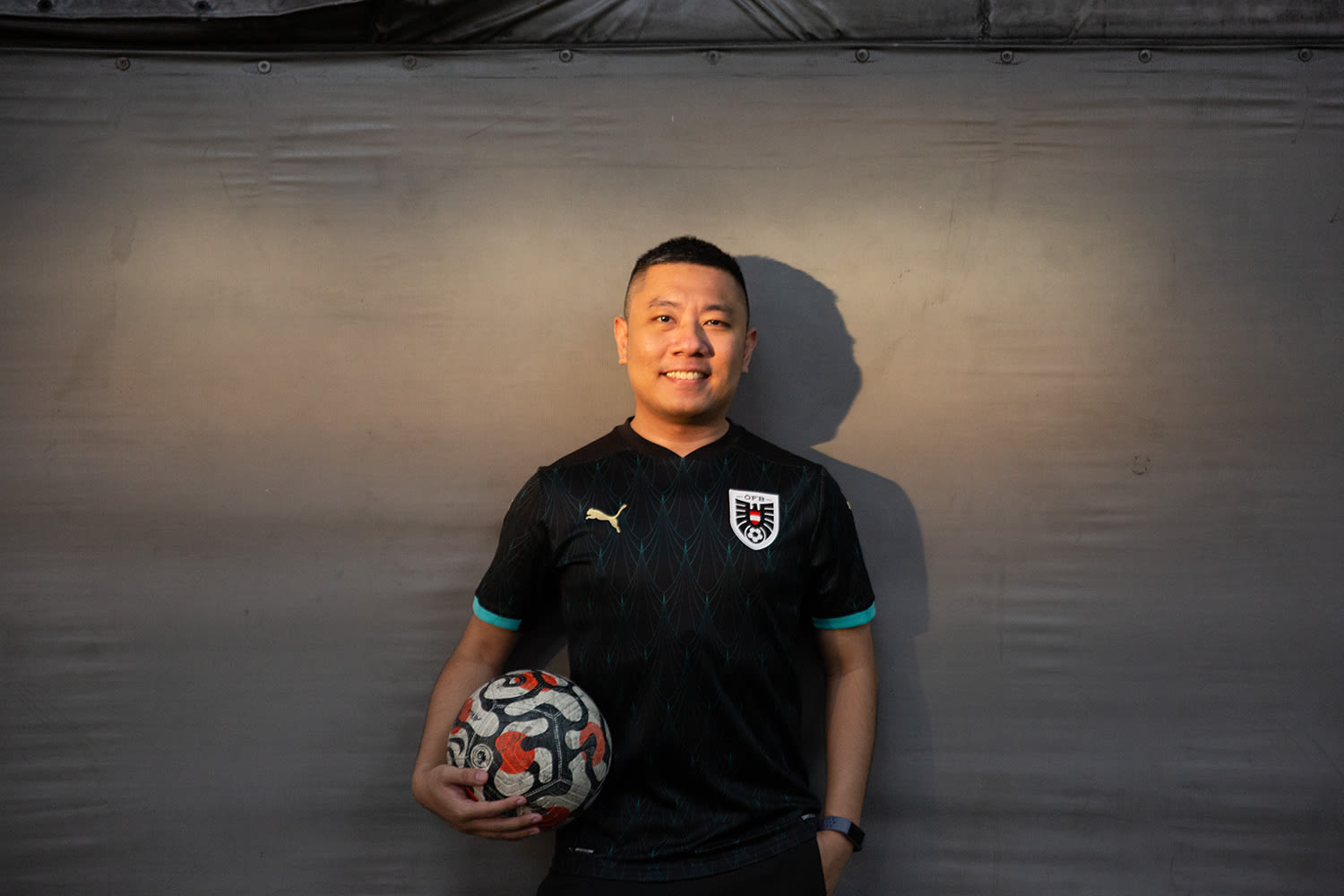
While having to miss out on their usual weekend games can be frustrating for adults, the pandemic-forced disruption to team sports can be much harder for children who are more physically active, especially for those whose daily routines once revolved around such activities.
Mr Jim Lim, 50, has had to find new pursuits for his 15-year-old daughter and 13-year-old son. The girl had been active in netball while her brother had been playing basketball before Covid-19 struck.
In 2019, his son, then in Primary 4, attended his school’s special sports programme, which trained him in both basketball and badminton once a week for eight months.
It was supposed to continue until he finished Primary 6 but Covid-19 put a halt to the programme.
In the absence of these team sports, Mr Lim has been accompanying his children on runs and cycling trips once or twice a week.
While these have kept them fit and active, the values his children learn from doing solo activities are not as rich as those learned in a team sport, said the senior manager at a cloud computing company.
“When participating in team sports, you learn leadership, (develop) camaraderie. Like when you’re playing football, it's not just attacking and moving with the ball, it’s teamwork — that (aspect) has suffered a little bit,” said Mr Lim.
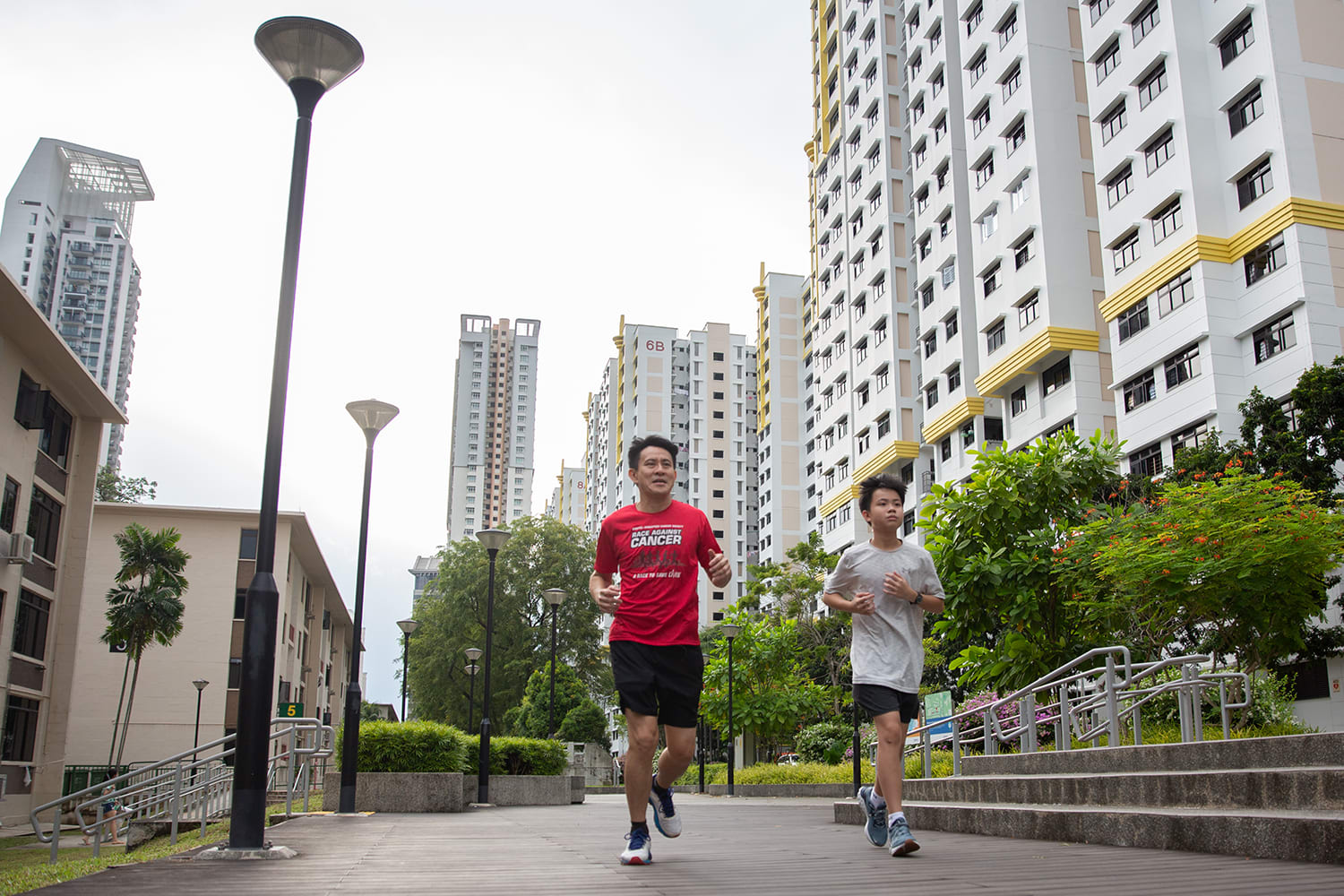
“There is the camaraderie with friends, even if you have a bad game, you can still talk nonsense and joke with them.Football enthusiast Hatta Aziz, 35”
“When participating in team sports, you learn leadership, (develop) camaraderie. Like when you’re playing football, it's not just attacking and moving with the ball, it’s teamwork — that (aspect) has suffered a little bit.Mr Jim Lim, 50, who has had to find new pursuits for his teenage children”
Indeed, with the strict safe distancing measures and group size limitations affecting many facets of life here, team sports participation has taken a severe beating, amateur players, coaches and sports associations here told TODAY.
For a brief moment recently, team sports enthusiasts were cheered when it was announced on Feb 16 that from Friday (Feb 25), up to 30 fully vaccinated people can play sports together at approved facilities with no self-testing.
Then, just a day before the changes were due to kick in, there was a sudden announcement that they will be postponed to a date to be announced later, in part to the surge in Omicron coronavirus cases.
The importance of sports, particularly team sports, in building community bonds has long been recognised by the Government. In 2014 for example, it launched ActiveSG, a national drive to make sports more accessible, relevant and affordable here.
Though unavoidable, the prolonged disruption to team sports will have ramifications both within and beyond the sporting fraternity, such as affecting people’s mental well-being and the development of children’s social skills, experts and sports practitioners told TODAY.
While some, like Mr Hatta, are still finding ways to remain engaged in their favourite sport through training sessions, others have lost the motivation to pursue it.
Some coaches have also expressed concern that the talent pipelines for some team sports have been disrupted, due to a lack of recruitment of younger players over the past two years. This especially affects “up and coming” sports such as floorball and ultimate frisbee, as many children only pick up these activities in school.
Dr Lim Boon Leng, a psychiatrist at Gleneagles Medical Centre, noted that team sports have an important role in bringing people together.
Unlike other social activities, team sports have a relatively low barrier of entry, and participants are compelled to work towards a common goal, said Dr Lim. “It’s very difficult to find another reason other than team sports to bring a large group of people together for a single purpose,” he said.
He added: “I think you can see this in other activities (in the arts) like maybe a string quartet, or an orchestra, but for those activities there’s a high barrier of entry. For team sports, sometimes you just need a ball.”
SPORTS PARTICIPATION HIT BY RULE CHANGES
The slew of changes to permissible group sizes over the past two years has made the organisation of most team sports almost impossible, said players and coaches.
In response to TODAY’s queries, the Basketball Association of Singapore (BAS) said that participation rates for the sport have been “badly affected” across all levels due to the safe management measures imposed over the last two years.
Associate Professor Koh Koon Teck, who is BAS president, said that since late last year, Sport Singapore (SportSG) had given “special permission” to allow the national basketball team to train in a group of tens. “Since then, we have been ramping up training frequency and seeking the help of Singapore Sport Institute in terms of fitness assessment to keep track of our players' conditioning, ensuring that they can still play at a high level,” he added.
SportSG did not respond to TODAY's queries on community football participation rates over the past two years, especially among children and youths. SportSG runs the ActiveSG Football Academy, which trains children and youths aged between three and 16 years old.
For sports such as ultimate frisbee, there has been a sharp dropout rate due to the lack of proper playing facilities, coupled with the lack of competitions over the last two years. Ultimate frisbee player Tan Tyn Long, who is the training director at Thirsty Camels ultimate frisbee club, said that at the start of the pandemic, the players still tried to meet up online for workout and drills sessions. However, as the crisis dragged on, many quit. While there were about 40 people in the club before Covid-19, only about 15 have been returning to training sessions lately.
“A lot of people have dropped out of the sport,” he said. “Some are driven by being able to compete, but now competitions are completely gone.”
“A lot of people have dropped out of the sport. Some are driven by being able to compete, but now competitions are completely gone.Mr Tan Tyn Long, training director at Thirsty Camels ultimate frisbee club”
With many children switching out of some team sports in search of more convenient alternatives, the dropout rate for children has gone up, according to some coaches.
Mr John McAuliffe, a coach from basketball training academy SG Basketball, said that among the children whom he has been training since pre-Covid-19, about 15 to 20 per cent have stopped coming consistently or quit altogether.
While many of his younger students have stayed on to continue with skills training, the older children and teenagers tend to leave since they are unable to play matches.
“The older ones have learned their skills and they want to play games,” said Mr McAuliffe. “We do see some of them come occasionally (when restrictions ease), but they may disappear for several months when they’re not able to play.”
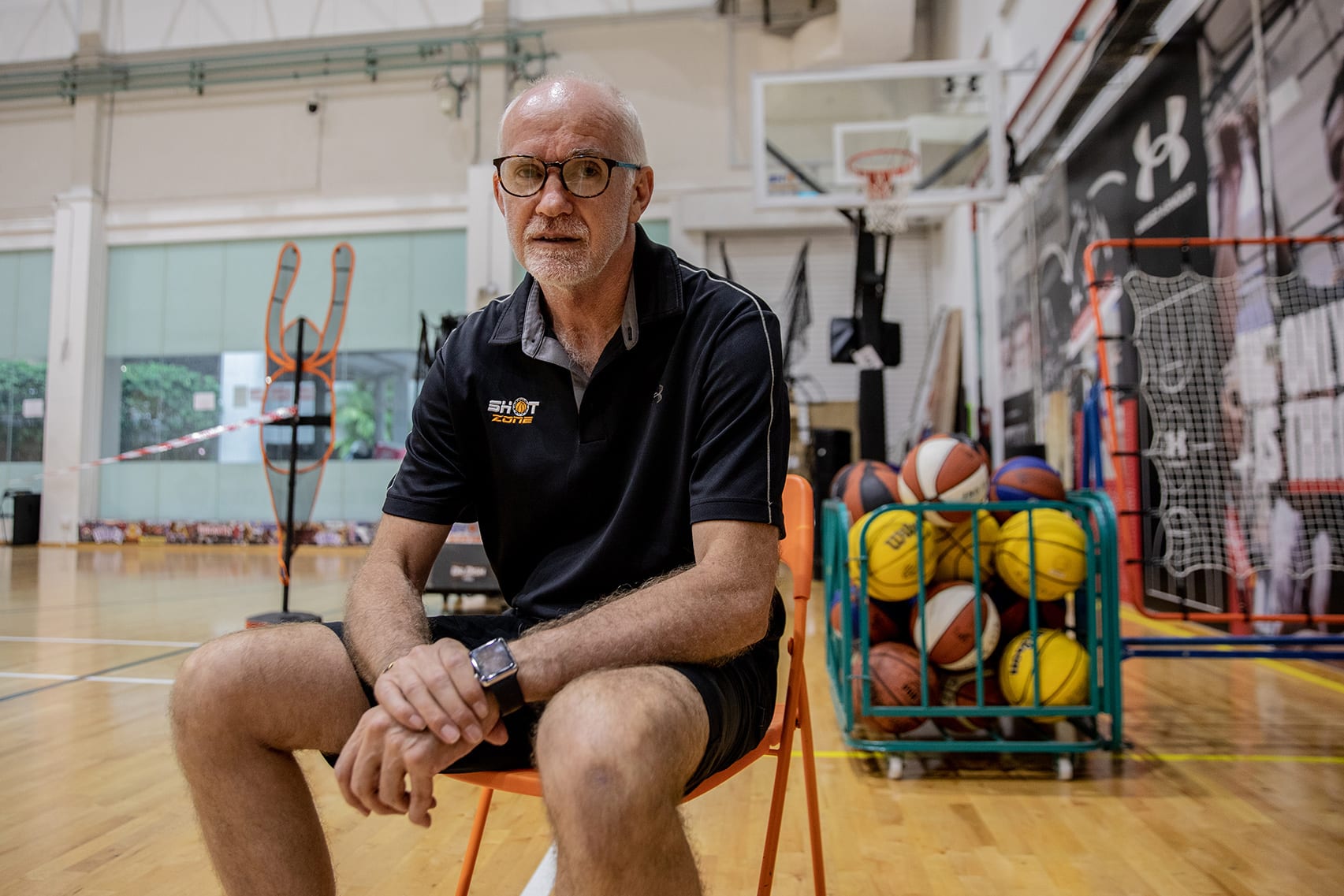
“We assume that as children grow, they will be able to socialise and know how to react in social circumstances appropriately. But actually, a lot of these skills are learnt. Children can really learn a lot from team sports.Dr Lim Boon Leng, a psychiatrist at Gleneagles Medical Centre”
“Meeting up just for a chit-chat or to catch up — which does not involve doing things together for a common project and in pursuit of common goals reflecting common interests — may not provide the glue that could pull people together and sustain group lifeNational University of Singapore sociologist Tan Ern Ser”
WIDER RAMIFICATIONS
The physical element aside, the sudden inability to participate in one’s favourite team sport constitutes a sudden loss of a coping mechanism for some people — and this may even affect their mental well-being, some experts told TODAY.
Dr Lim from Gleneagles Medical Centre said: “For some, their (coping mechanism) is very specifically team sports, to meet up on a Sunday with their friends for a game of football... Having lost that, they lost a means to destress.”
Such a loss can lead to negative outcomes such as poorer quality of sleep, anxiety and even depression — symptoms which may be exacerbated by the already stressful context of a pandemic.
He added that the benefits of team sports actually “goes beyond the activity itself”.
“There is a lot of networking and interaction, there’s also the part where, for example, after the sport itself the group may go (for a meal) together, and there’s the camaraderie that you build, friends that you make,” he noted.
Agreeing, National University of Singapore (NUS) sociologist Tan Ern Ser said that what differentiates team sports from other social activities is that “team sports involve collaboration (and) cooperation in pursuit of common goals”.
“This can contribute towards developing a sense of belonging, identity, and community," said Assoc Prof Tan. “In contrast, meeting up just for a chit-chat or to catch up — which does not involve doing things together for a common project and in pursuit of common goals reflecting common interests — may not provide the glue that could pull people together and sustain group life.”
For children, team sports help in their development and learning of social skills, said Dr Lim.
During the pandemic, he said, youths and children have become fixated with social media and online gaming, as physical and social interactions are being kept at a minimum.
“We assume that as children grow, they will be able to socialise and know how to react in social circumstances appropriately. But actually, a lot of these skills are learnt. I think children can really learn a lot from team sports," he said. There may also be longer term consequences for children and youths.
Dr Lim added: “Without team sports and interacting with friends, their social development will be stunted, and sometimes you find that they’re not as able to form bonds well with friends, and they miss the opportunity to have long-lasting friendships."
“The attrition rate has been very high, and many schools have slowed down their rugby CCA (co-curricular activity) or stopped it… games are not allowed, and competitions are not allowed.Singapore Rugby official Douglas Danapal, who noted that there’s an entire cohort of junior college students who had “not played a single match of rugby” in their entire two years there”
IMPACT ON TALENT PIPELINE
Apart from wider societal ramifications, the decline in team sports participation has also been detrimental to the development of young sporting talent in Singapore, said coaches and sports associations.Mr Douglas Danapal, head of commercial, public relations and communications at the Singapore Rugby Union, said that many students who had enrolled into junior college in 2020 had “not played a single match of rugby” in their entire two years there.
This would include students who had entered their respective institutions through the Direct School Admission scheme.
“The attrition rate has been very high, and many schools have slowed down their rugby CCA (co-curricular activity) or stopped it… games are not allowed, and competitions are not allowed,” he said.
Mr Danapal was afraid that due to the lack of game time, Singapore will be less competitive in the sport.
“We are one of the few countries in South-east Asia that has yet to start full-contact rugby training for clubs,” he said.
Responding to TODAY’s queries, the Ministry of Education (MOE) acknowledged that the Covid-19 safe management measures "have indeed impacted the way CCAs, including team sports, are conducted". Nevertheless, it said that schools "have adapted and modified their CCA sessions to minimise the disruptions caused by Covid-19, and to continue providing opportunities for students to be meaningfully engaged”.
Since November last year, secondary schools, junior colleges and the Millennia Institute have resumed full CCA sessions, the ministry added.
About 100 secondary schools, junior colleges and the Millennia Institute are also participating in the Team Sports pilot by MOE and the Ministry of Culture, Community and Youth. Under the pilot, about 10,000 students have been able to return to courts and fields as part of this pilot, playing sports such as basketball, floorball, football and netball.
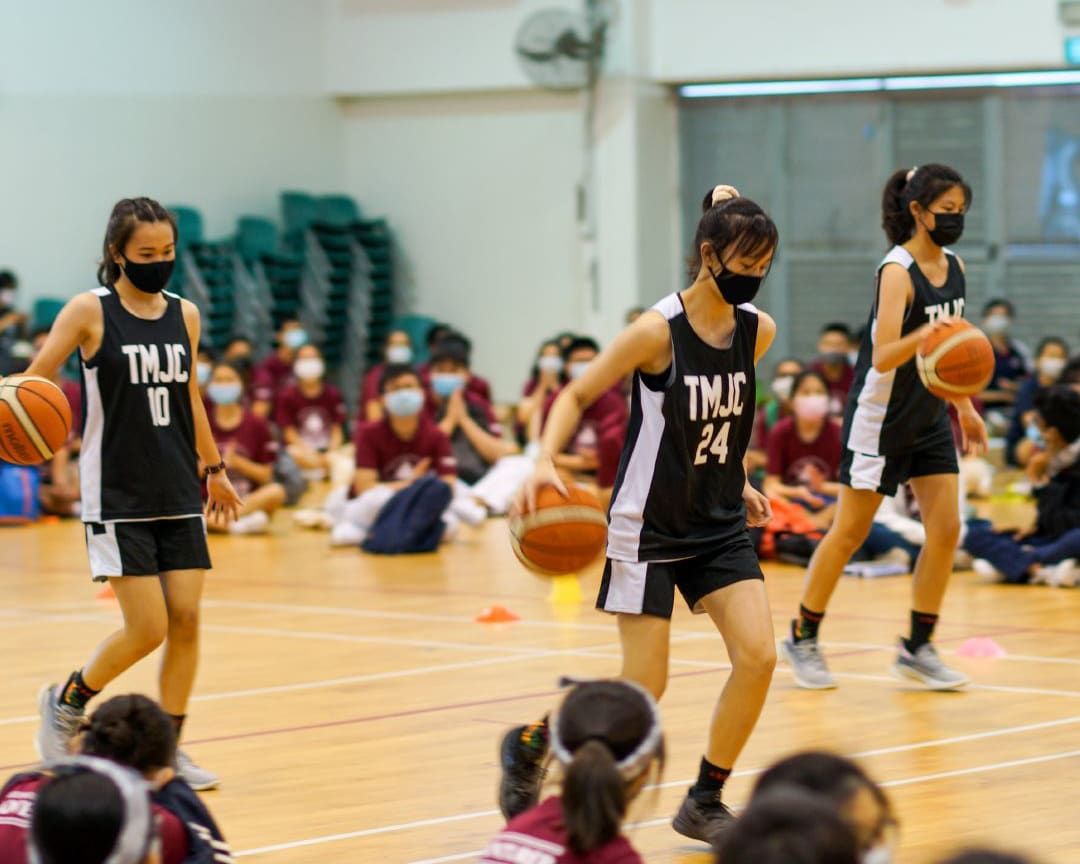
“MOE is in-principle keen to extend the sports pilot to the primary schools, but we will need to closely monitor the Omicron situation before making a decision and will take into consideration the national safe management measures posture for sports activities,” the ministry said.
It also hopes to resume the National School Games, which have been suspended since 2020, in the coming months in “a safe and calibrated manner, subject to any changes in the Covid-19 situation”.
And while there has been a pause in the relaxation of the measures to a larger group of 30 participants, players and coaches still hope for the continual easing of restrictions.
Mr Lim, the father of two, said that he is encouraged by the announcement itself, and hopes his children can return to full-fledged team sports soon.
“These are good first steps …but currently, with the rate of infections going up… I think we still need to be very cautious.”
While Mr Rajesh Mulani, co-founder of futsal facility The Cage, was disappointed over the delay, he remained optimistic that the relaxation measures will eventually go ahead, after the current Omicron wave subsides.
Although his businesses revenue had fallen to as low as 20 per cent at the height of the pandemic and has now recovered slightly to 40 per cent, Mr Rajesh was determined that the reopening of his pitches be done in a safe manner.
“I don’t want to operate procedures where there’s no confidence at the country level (in how to cope with omicron)… if that’s not there right now, we need a little more time, and it is far better for us to do it right than doing it recklessly.”











